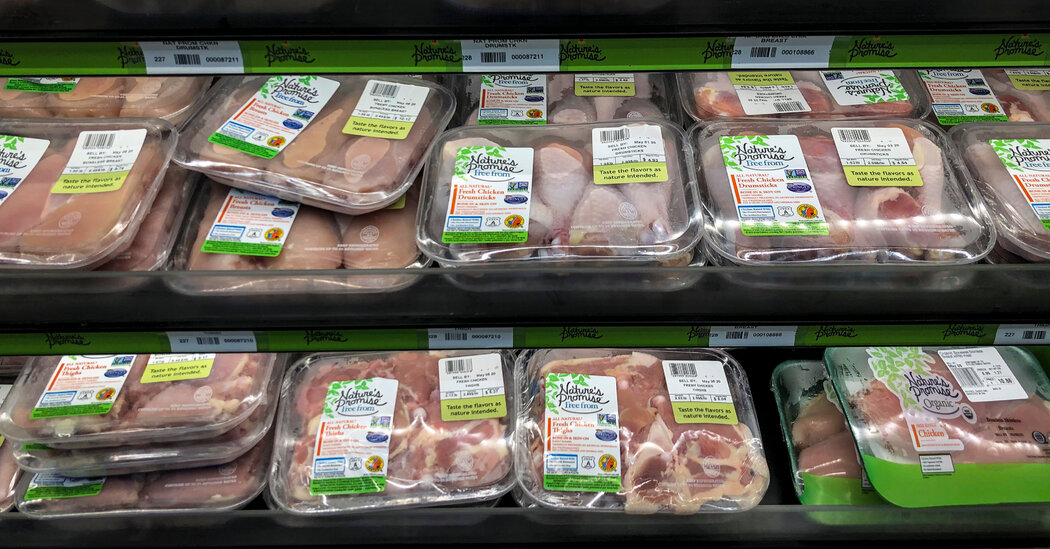“Local weather Good.” “Regeneratively Grown.” “Sustainable.”
If you happen to’re questioning about all these labels on meat and poultry on the grocery retailer, it seems it is also the USDA.
The company, in update of its industry guidelines revealed this week, signaled it’s paying nearer consideration to how firms endorse new environmental buzzwords and mentioned it “strongly encourages” meat and poultry suppliers to have these claims verified by impartial third events.
Meals firms have lengthy needed to get USDA approval for his or her labels. This is applicable to phrases like “cage-free eggs” or “grass-fed” beef. The latest guideline update it was in 2019
On this weekly steering replace launched Wednesday, the USDA took notice of a few of the newest environmental advertising claims comparable to “climate-friendly.” He mentioned he “strongly encourages” meat producers to offer the USDA’s Meals Security Division with “information or research to help the environmental claims on their labels.”
The company mentioned third-party verification “helps be certain that such claims are true and never deceptive,” though advocacy teams level out that these verification providers themselves differ in high quality.
The company’s steering follows rising concern by environmentalists and shopper teams about what is usually known as greenwashing, or the apply of creating deceptive claims a couple of product’s environmental influence. And it displays increasing scrutiny by courts and regulators world wide on product labeling geared toward environmentally aware shoppers.
For instance, earlier this 12 months a nationwide court docket in Denmark advised Danish Crown, the nation’s largest pork producer, that it was deceptive to label its pork as “local weather managed”. The corporate discontinued that phrase together with one other local weather declare.
In New York State Lawyer Normal Letitia James is suing JBS, the multinational meat producer, for producing “broad representations‘ to offset its emissions within the coming years, however provided ‘no viable plan’. JBS requested the court docket to dismiss the case. The corporate didn’t instantly reply to a request for remark.
Advertising claims replicate how manufacturers attempt to meet shopper calls for. In the US, gross sales of shopper merchandise which might be labeled inexperienced or sustainable are grow twice as fast as those that are notin accordance with analysis from New York College’s Stern Faculty of Enterprise.
The Environmental Working Group, an advocacy group, petitioned the USDA final 12 months asking to ban firms from advertising beef as “climate-friendly.” It was prompted by an announcement by Tyson Meals, one of many nation’s largest livestock firms, a couple of floor beef product that the corporate mentioned was produced from cattle in its “climate-smart beef” program.
Tyson Meals didn’t return a request for touch upon the newest USDA steering. Its web site says its “climate-smart beef” program goals to cut back emissions within the beef provide chain.
Beef is one of the best polluting the climate type of meat.
Scott Faber, who leads authorities affairs for the Setting Working Group, welcomed the newest steering. He mentioned this displays the USDA’s altering method to contemplating the proliferation of recent local weather claims on meat merchandise. “There shall be much more scrutiny,” he mentioned.
The rules don’t require third-party verification of environmental claims.
The USDA’s new pointers are significantly harsh on claims about antibiotic use. If an organization affixes a label claiming that livestock has been raised with out antibiotics, the company recommends, however doesn’t require, firms to pattern and take a look at animals for antibiotic use earlier than they’re slaughtered, or to make use of a third-party group, to take the take a look at.

